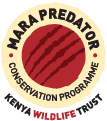Research
Mara Predator Conservation Programme (MPCP) focuses on interdisciplinary scientific research. This enables us to identify and implement sustainable solutions to emerging conservation challenges, all within the Greater Mara Ecosystem. Our approach combines natural and social sciences. Through this, we acquire a holistic overview of the entire ecosystem and identify areas of concern, not only for predators and the community, but also for the entire ecosystem.
We use proven scientific techniques to collect data relating to:
- large predator population trends
- predator mortality
- predator dispersal
- general ecology
- wildlife and human behavior
- predator genetics, endocrinology and epidemiology
Using a free application called Cybertracker, we have created customised applications to allow us to collect required ecological data. Cybertracker automatically records a GPS point every 10 seconds. It also records our tracks when our team is out in the field. This means that sightings can be weighed against the amount of distance or time that has been spent in an area (known as ‘effort’), thereby eliminating biases. By taking ID photos of each predator we see, we are essentially ‘marking’ that individual and are then able to notice when we ‘recapture’ it again. Therefore, instead of trying to count every single predator, we randomly capture (or ‘sight’) a sample group of the population, mark it (by taking a photo), and then perform a series of ‘recaptures’. This allows us to estimate the entire predator population.
We have a dedicated community outreach team, who work closely with our researchers to collect social data through meetings with community members. This could be anything from attending a human-wildlife conflict incident to a formal community meeting (baraza) or discussion group. The collection of this community-driven data allows us to work with local people to deliver sustainable solutions in areas of conservation concern.
The Mara Predator Conservation Programme is Kenya Wildlife Trust’s long-term commitment to predator conservation, based on the fact that each successive year of research and community engagement will increase the value of our data and, therefore, the effectiveness of our conservation actions. Furthermore, it is only with time that ecological and anthropogenic patterns can be captured, and trends in the predator population explained. The natural and social sciences data that we are collecting will continue to assist our understanding of how predators are surviving in a complex and rapidly changing ecosystem.
To support our work in the Mara, please click here.

